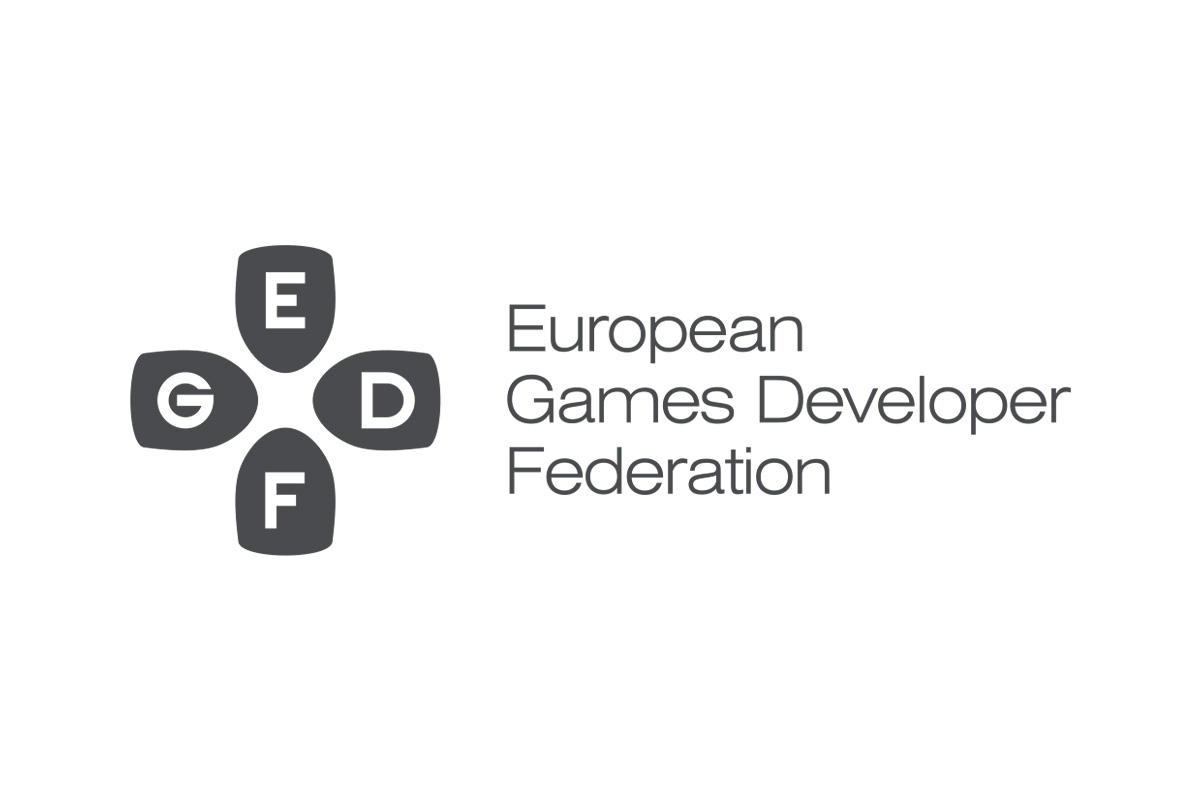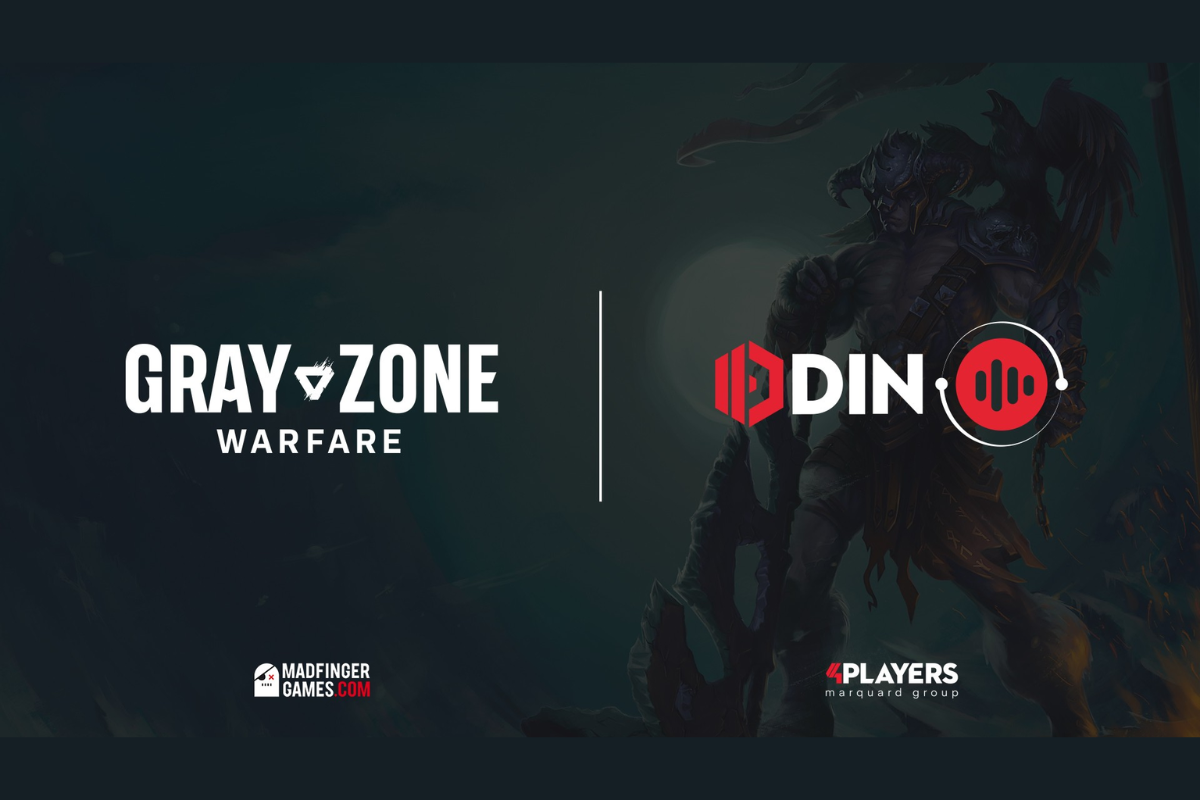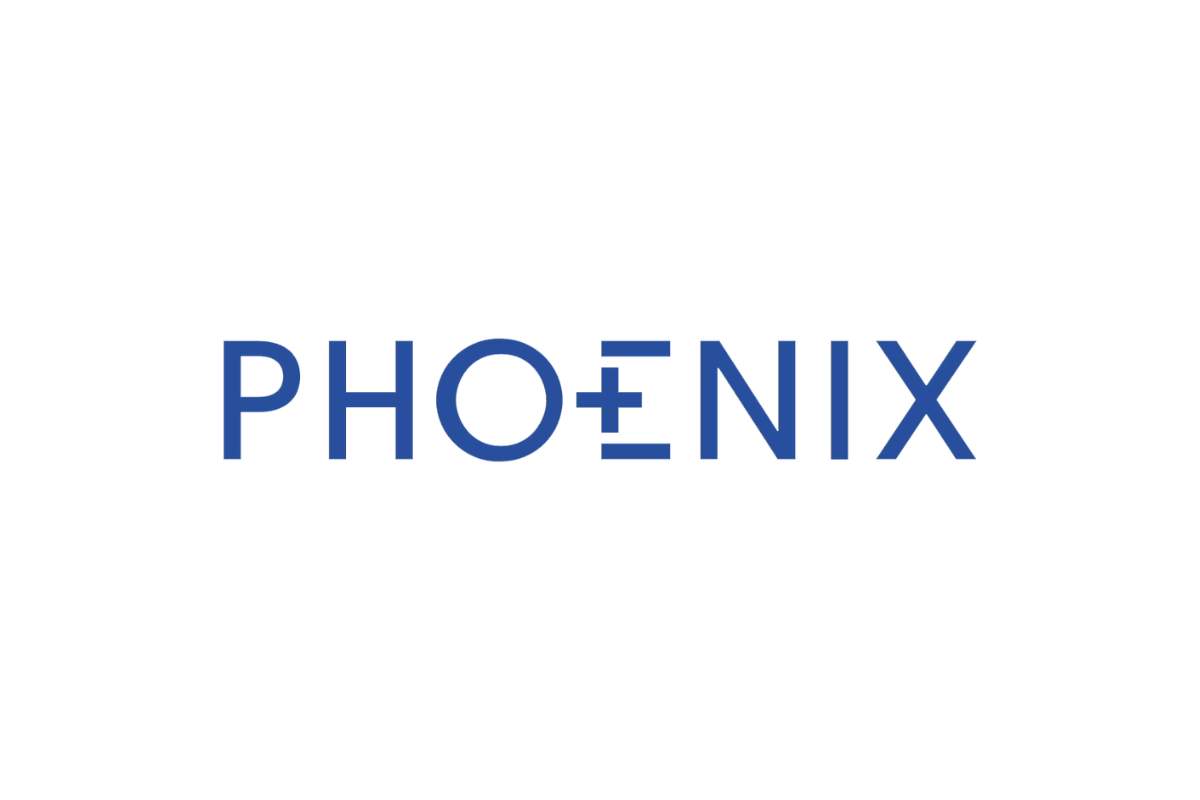Gaming
EGDF: UNITY’S INSTALL FEES ARE A SIGN OF LOOMING GAME ENGINE MARKET FAILURE

Step by step, video game engines are becoming key gatekeepers of European cultural and creative sectors. Currently, Unity dominates game engine markets, Unreal being its primary challenger. These two engines are not just clear market leaders in the game industry but increasingly vital market actors in film, architecture, and industrial design and simulations. In 2022, Unity reported that globally, 230,000 game developers made and operated over 750,000 games using the Unity Engine and the Unity Gaming Services portfolio of products.
Unity’s new fee structure is going to have a drastic impact on the game industry.
Over the years, the Unity game engine has reached close to unofficial industry-standard status in some game markets. Its well-designed tools and services have lowered the market access barriers in the game industry. Furthermore, it has played a crucial role in removing technological barriers to cross-platform game development. Now, Unity has informed the game dev community that it will move from subscription-based fees to subscription and install-based fees, which will significantly increase the game development costs for most game developers relying on their services. EGDF finds it unfortunate that Unity has significantly damaged its reputation as a reliable and predictable business partner with these sudden and drastic changes in its pricing principles.
Bigger game developer studios have the luxury of being able to develop their own game engines. Consequently, market uncertainty and significantly increased service provider risks caused by Unity’s new fee structure will hit, in particular, SME game developers. It will be much harder for them to build reliable business plans, make informed decisions on game engines, and run a profitable business. Many of these studios struggled to access risk funding before Unity’s announcement, and it has only worsened their situation.
Unity’s decision will have a broader impact on the whole game industry ecosystem. Many professional game education institutions have built their curriculum on the Unity game engine. If Unity’s new pricing model starts a mass exodus from Unity’s engine, it will lead to rapid changes in professional game education itself and place many young industry professionals who have built their career plans on mastering Unity’s tools in a very difficult position.
Although Unity’s decision will cause significant challenges for the industry, EGDF kindly reminds that instead of focusing on blaming individual Unity employees for the changes, it is far more productive to focus on taking measures that increase competition in game engine markets.
Unity’s anti-competitive market behaviour must be carefully monitored, and, if required, the European competition authorities must step in.
Unity is an increasingly dominant market player in the game markets. According to Unity’s own estimate, in general, 63% of all game developers use its game engine. The share can be even higher in some submarkets. Unity estimates that 70% of top mobile games are powered by its engine. Unsurprisingly, Unity’s game engine is now a de facto standard in mobile game markets to the extent that whole formal professional game education degree programmes have been built on training its use. However, Unity’s market dominance is not just based on the quality of its game engine. It is also an outcome of aggressive competition practices and systematic and methodological work of making game developers dependent on Unity services.
How Unity bundes different services together potentially distorts competition in game middleware markets. Over the years, Unity has, step by step, bundled its game engine more and more together with other game development tools under the Unity Gaming Services portfolio. Unity is not just a game engine; it is also a player sign-in and authentication service, a game version control tool, a player engagement service, a game analytics service, a game chat service, a crash reporting tool, a game ad network, game ad mediation tool, an user acquisition service and in-game store building tool. This creates a significant vendor lock risk for game developers using Unity services. It also makes it difficult for many game middleware developers to compete against Unity and, all in all, significantly strengthened Unity’s game engine’s market position compared to its rivals.
Now, Unity is strategically using install fees to deepen the lock-in effect by creating a solid financial incentive to bundle other Unity services even closer to its game engine: “ Qualifying customers may be eligible for credits toward the Unity Runtime Fee based on the adoption of Unity services beyond the Editor, such as Unity Gaming Services or Unity LevelPlay mediation for mobile ad-supported games. This program enables deeper partnership with Unity to succeed across the entire game lifecycle.” This will, of course, drastically impact Unity’s direct competitors.
Unity’s install fees are an excellent example of Unity’s potentially anti-competitive market behaviour. It is clear that if Unity’s pricing model had, in the past, been similar to the now-introduced model, it would likely never have achieved the level of dominance it enjoys today, as more developers would have chosen another alternative in the beginning.
The fact that Unity’s new install fees are only targeted at video games and do not apply to other industries logically leads to a question: Is Unity setting prices below cost level at different market segments, or is Unity charging excessive prices in game markets? Furthermore, does the fact that Unity is now introducing an install fee on top of the licensing fee mean that licensing fees have before been below cost level? Or does the introduction of install fees on top of the licensing fees of their game engine allow them to provide other, lock-in generating, services below cost level?
In the end, Unity has built its dominant position in game markets for years and systematically made game developers more dependent on it. It is a good question if Unity has now crossed the line of abusing its market dominance on weaker trading parties that deeply depend on its services. Game productions can take years, and game developers cannot change their game engine at the last minute, so they are forced to accept all changes in contract terms, no matter how exploitative they are. Unity must know that if they had given more notice, many more developers might have had a realistic chance of abandoning Unity altogether by the time the new pricing came into play.
The new install fees will limit game developers’ freedom to conduct business as it pushes them to implement Unity ad-based business models even in games that otherwise would not have ad-based monetisation. Furthermore, this will create a competitive disadvantage for those game distribution platforms that do not use ad-based monetisation at all (e.g. subscription services and pay-per-download games), as Unity is de facto forcing them to increase their consumer fees compared to channels that allow the use of Unity’s ad-based monetisation tools.
The new install fees will likely lead to less choice for consumers. Install fees will allow Unity to extract value from games that generate a lot of installs through, e.g. virality, but do not necessarily generate money. Install fees will lead to markets where game developers want to limit the downloads and try to avoid installs from the wrong players. This can potentially kill part of the game market. For example, indie developers that have an unfortunate mix of being a success on the number of installs but that are struggling to generate revenue, or hyper-casual game studios based on combining a huge install base with minuscule revenue generated per game.
In the long run, the EU needs to update its regulatory framework to answer the challenges caused by dominant game engines.
Unity’s install fees demonstrate why the EU needs a new regulatory framework for unfair, non-negotiable B2B contract terms. Contract terms Unity has with game developers are non-negotiable. With the new non-negotiable install fee, European game developers have to either withdraw their games from markets, increase consumer prices or renegotiate their contracts with third parties. For example, if a game memory institution makes games available for download on their website, a game developer studio must now ask for a fee for it or ban making European digital cultural heritage available to European citizens. The three-month time frame Unity is providing for all this is not enough.
The Commissions should introduce a specific regulation for non-negotiable B2B contract terms. The regulation should provide sufficient time (e.g. in a minimum, six months) for markets to react to significant changes in non-negotiable terms and conditions that a service provider has communicated to their business users in a plain, clear and understandable manner (e.g. now it is unclear how Unity counts the installs). Furthermore, the Commission should bring much-needed market certainty by banning retroactive pricing and contract changes.
The Commission should include game engines in DMA. While reviewing the recently adopted Digital Markets Act (DMA), the Commission should consider lowering the B2B user thresholds and adding gatekeeper game engines under its scope. This would, for example, ensure that Unity cannot use data it collects through its game engine to gain an unfair competitive advantage for its other services like advertisement services.
The Commission should increase its R&D support for the European game industry. The fact that there is no major competitor for Unity Engine that does not require constant back-end server connection is a market failure in itself. The Unity Game engine is not fully scalable because Unity has built its engine in a way that it calls home every time it is installed to report instals for Unity. Consequently, the Commission should strengthen its efforts to support the emergence of new European game technology and business service providers. In particular, the Commission should increase its support for privacy-friendly open-source alternatives for game engines, like for example Godot or Defold or similar, that do not require constant back-end server connection and thus have no need for scalable revenue-based fees or install fees.
Gaming
4Players and ODIN deliver cutting-edge voice chat for Gray Zone Warfare

The globally operating software company 4Players GmbH announces its partnership with MADFINGER Games, the developer behind the highly anticipated tactical first-person shooter Gray Zone Warfare. The collaboration aims to level up in-game communication by integrating 4Players’ next generation Voice Chat SDK, ODIN, into MADFINGER Games’ upcoming title.
MADFINGER Games’ goal is to create a complex and realistic gaming experience that allows players to embark on an adventure alone or in a team. To ensure excellent communication during tactical approaches, ODIN was the best choice for MADFINGER Games’ Technical Director Johanny Clerc-Renaud:
“Selecting ODIN as the voice chat in our upcoming title, Gray Zone Warfare, was a pivotal decision driven by both technical and business considerations. Technically, ODIN ticks a lot of our criteria with its support for spatial audio, a ready-to-deploy Unreal Engine 5 plugin and the ability to meet any player load thanks to their cloud hosting.
From a business perspective, the agility and openness of partnering with a company like 4Players meant we could work hand-in-hand to tailor the solution to our specific needs. This includes a seamless integration with Wwise, allowing us to modulate voice data for a more immersive and engaging player experience. Together, these factors made ODIN the undeniable choice for Gray Zone Warfare, enabling us to make our game even more memorable.”
By natively integrating ODIN Voice Chat into Unreal Engine 5, MADFINGER Games’ developers could focus on creating ultra-realistic game content instead of managing complex data sets. By leveraging ODIN’s scalable cloud hosting, MADFINGER Games can also ensure seamless service delivery to players worldwide, improving accessibility and the gaming experience.
With features such as real-time 3D spatial audio – including audio occlusion and ambient effects – for the global voice chat as well as full-volume radio communication, ODIN sets a new standard for multiplayer engagement and promotes immersive and crystal-clear interactions between players. This level of immersive communication not only enhances gameplay, but also strengthens the social fabric in the gaming community.
“ODIN represents the future of in-game communication. We combine cutting-edge technology with decades of expertise in the gaming industry to create a product that is fun and designed to improve gamers’ communication,” says Phillip Schuster, CEO at 4Players GmbH. “We are excited to be working with MADFINGER Games to further optimize the immersion of Gray Zone Warfare. The partnership highlights our shared goal of driving social interaction and creating a unique gaming experience.”With the release of Gray Zone Warfare for Early Access on 30th April 2024, players will experience unparalleled realistic gaming communication with ODIN.
Gaming
Phoenix Games acquires PopReach Games along with its impressive games portfolio and over 100 employees

Phoenix Games, a global gaming enterprise specializing in the acquisition and enhancement of game studios, is thrilled to announce the acquisition of PopReach Games, a live operations studio based in Bengaluru, India, from Ionik for a total aggregate purchase price of up to US$9.8 million, financed from cash reserves. Together with the studio, Phoenix takes over a broad portfolio of free-to-play games that boasts more than 420 million lifetime downloads.
This transaction substantially diversifies the Phoenix portfolio by including globally recognized IPs and beloved free-to-play titles on different platforms, such as Smurf’s Village, Smurf’s Magic Match, Gardens of Time, Kitchen Scramble games, Kingdoms of Camelot, and War of Nations as well as the Brain Training app Peak..
The acquisition of PopReach Games India strengthens Phoenix Games’ global presence and adds a dedicated workforce of more than 100 employees from the Indian studio.
“The acquisition of PopReach Games signifies a remarkable enhancement of our portfolio, introducing not just a team of 100 passionate professionals but also a suite of globally acclaimed IPs and games that continue to captivate millions,” states Klaas Kersting, CEO of Phoenix Games. “We look forward to elevating these games to new heights with our proprietary Uplift platform and exciting new game experiences that we can craft around them.
Echoing this sentiment, Jairaj NS, General Manager at PopReach Games India, shares, “I am excited about joining forces with the stellar team at Phoenix Games. This marks the beginning of an exciting journey we can’t wait to embark on with Phoenix as our new home. This is great news for all the stakeholders, especially for the millions of our loyal players across the globe. I am happy we have found a new ideal home for our globally acclaimed games. This partnership enables us to continue pouring our hearts and souls into creating unforgettable experiences for our players worldwide and create value for stakeholders.”
Ted Hastings, CEO of Ionik, adds: “It’s truly remarkable that we’ve discovered the perfect home for our former games division, PopReach Games India, with Phoenix Games, ensuring a promising and successful path ahead. This strategic move enables us to turn our full attention to our core responsibilities”.
Based in Karlsruhe, Germany, Phoenix Games boasts an impressive lineup of studios, including Upright Games, Sixteen Tons Entertainment, Well Played Games, Smileygamer, and the recent addition of Canadian developer Sad Panda Studios in November 2023.
Utilizing its proprietary Uplift platform, Phoenix Games enhances the financial performance and reach of the titles of acquired game studios, providing their expertise in user acquisition, ad monetization, and live operations to ensure an economic upswing.
Gaming
Midjiwan Supports Reforestation Efforts With New Elyrion Tribe Skin In The Battle Of Polytopia

Midjiwan, the award-winning independent studio behind The Battle of Polytopia, is celebrating Elyrion (∑∫ỹriȱŋ) Tribe Week with a brand-new Midnight (₼idŋighţ) skin and donations to support reforestation.
Tapping into the Elyrion Tribe’s nature magic abilities, every purchase of an Elyrion item in the game will plant one real-world tree from April 22-28 2024. Midjiwan has teamed up with The Canopy Project, an organisation that works with global partners to reforest areas in urgent need of rehabilitation, combining The Battle Of Polytopia’s themes with a desire to make real change in the world. Previous years of Elyrion Tribe Week have resulted in the planting of over 12,000 trees.
The Elyrion Tribe is a mysterious group of elves, dedicated to defending their woodland home with their unique magic and connection with nature. Players using the Elyrion tribe have the ability to enchant animals into Polytaurs and summon powerful Fire Dragons.
Christian Lövstedt, General Manager at Midjiwan, commented:
“This is a hugely exciting partnership, allowing players to support the planet and contribute to reforestation whilst also accessing brilliant new content to use in The Battle Of Polytopia.”
Alongside donating to The Canopy Project, The Battle Of Polytopia also boasts a brand-new skin for the Elyrion Tribe! The Midnight skin allows players to create graves, build crypts, and summon demons in dark forests, all in service of the mysterious Shard of D’Naeh.
The Midnight skin re-skins the entire Elyrion Tribe as the Midnight Cult. Everything the Elyrion Tribe is all about – nature, enchantment, and sanctuary – is turned on its head, corrupted into a dark, twisted dystopia of itself.
Midjiwan has already invested €250,000 in solar power projects in rural areas around Africa, and other charitable projects. The studio continues to seek opportunities to combine its in-game creativity with real-world benefits. The Battle of Polytopia is available on Nintendo Switch, the App Store, Google Play, PC, and Tesla cars.
-

 Australia7 days ago
Australia7 days agoTabcorp Partners with OpenBet’s Sportsbook Technology to Propel Growth and Enhance User Experience
-

 Conferences in Europe7 days ago
Conferences in Europe7 days agoSuccess for the First Edition of the Italian Gaming Expo & Conference
-

 Interviews6 days ago
Interviews6 days agoTom Galanis: giving a First Look at the Top of the Slots
-

 Asia6 days ago
Asia6 days agoOnlyplay Enters into Strategic Partnership with Ritchie Rabbit
-

 Baltics5 days ago
Baltics5 days agoEvoplay bolsters presence in Lithuania with Betsafe deal
-

 Australia6 days ago
Australia6 days agoCrown Reinstated at Sydney Casino
-

 eSports7 days ago
eSports7 days agoGIANTX Promotes LVP Superliga Toplaner Th3Antonio to the League of Legends EMEA Championship Roster
-

 Compliance Updates5 days ago
Compliance Updates5 days agoEGBA Welcomes European Parliament’s Approval Of New EU Anti-Money Laundering Framework






















































